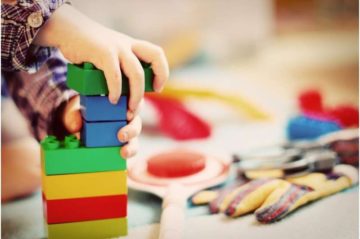From Phys.Org:
 A George Washington University study offers new insights into why human cultures become more complex over time. The study finds that people combine and generalize socially acquired knowledge over time, resulting in new and more complex knowledge. The ability to combine and generalize socially learned knowledge appears to occur prior to formal schooling and may represent a unique feature of human intelligence called generative cultural learning.
A George Washington University study offers new insights into why human cultures become more complex over time. The study finds that people combine and generalize socially acquired knowledge over time, resulting in new and more complex knowledge. The ability to combine and generalize socially learned knowledge appears to occur prior to formal schooling and may represent a unique feature of human intelligence called generative cultural learning.
A team from GW’s Social Cognition Lab, led by associate professor Francys Subiaul, assigned preschool-age children and college-age adults to build a tower by stacking two cubes, linking two flat squares, and then combining the two components. In a previous study, none of the preschool-age children and only 5% of adults provided with cubes and squares had produced the optimal tower on their own. However, after observing a model stack cubes and another model link squares, over 40% of children and 75% of adults imitated the demonstrated actions and built an optimal tower. The current study replicated the methods used in the previous study, but provided participants with twice as many cubes and squares. Not only did the participants use the social knowledge provided and extend it to the new exercise, they also spontaneously combined these two newly developed responses with additional cubes and squares to form one new, extra-tall tower. Although adults were better at the task overall, both children and adults learned at equivalent rates and made similar errors.
“The similarity of performance between children and adults, despite the wide gulf in experience, offers powerful evidence that these skills are neither learned in school nor explicitly taught by caretakers,” Subiaul said. “Instead, this mode of social learning involving the combination and generalization of social knowledge appears to be done by default. These results provide compelling evidence as to why only human cultures evolve and become increasingly complex over time.”
More here.
